As you’ve probably already noticed, we like to write articles about cats. And as we’ve already noticed, you like to read these articles just as much as we like to create them. But today, let’s mix things up a bit by putting a twist on this whole cat thing. Today, let’s talk about a wild cat that also happens to be an extremely rare one.
Recently, four camera trap pictures from the year 2013 have resurfaced on the interwebs, and turns out, these photos capture the first-ever confirmed case of a wild cougar with leucism.
More info: researchgate.net
These 4 photos were captured in Brazil back in 2013 using a trap camera
Image credits: ICMBio
These pictures were taken in Serra dos Órgãos National Park located in southeastern Brazil’s Atlantic Forest 7 years ago using a trap camera. Then, a few years later, an article published in the “Cat News” journal confirmed that these pictures, in fact, captured the first-ever confirmed case of a wild cougar with leucism.
In case you didn’t know, leucism is an abnormal condition caused by a genetic mutation and is characterized by the partial loss of pigmentation. Animals with leucism have white, pale, or patchy coloration of the skin, hair, feathers, scales, or cuticles, but not the eyes.
In 2018, a study confirmed that these pictures capture the first-ever seen case of a leucistic puma
Image credits: ICMBio
According to National Geographic, genetic color aberrations, such as albinism and leucism, are generally pretty common among wild cats, but for mysterious reasons, they’re almost unheard of in pumas.
“That shows you how extremely unusual it is,” executive director of the Wildlife Conservation Society’s Big Cats Program Luke Hunter told National Geographic. “It’s a striking set of photos.”
After these pictures were taken, the animal was never seen again
Image credits: ICMBio
Scientists have yet to figure it out why color-changing genes are so rare among these animals. “My best guess is that the distant ancestor of pumas was uniformly colored, and that has been maintained in the species ever since. But that’s just a consequence of the randomness of mutation, the roll of the genetic dice,” Hunter told National Geographic.
Even though leucism is pretty common among wild cats, for unknown reasons, it’s almost unheard of in cougars
Image credits: ICMBio
Sadly, after the fateful encounter back in 2013, the animal hasn’t been seen ever again. “The camera trap monitoring project restarted last year, but we still have no new record of this animal or any other odd-colored pumas,” Cecília Cronemberger de Faria, an environmental analyst for the national park where the cat was sighted, shared with National Geographic.
And here are some more pics capturing the beauty and uniqueness of leucistic animals
Image credits: Wikimedia Commons
Image credits: Wikimedia Commons
Image credits: Wikimedia Commons
Image credits: Wikimedia Commons

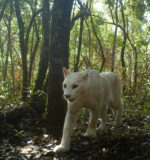

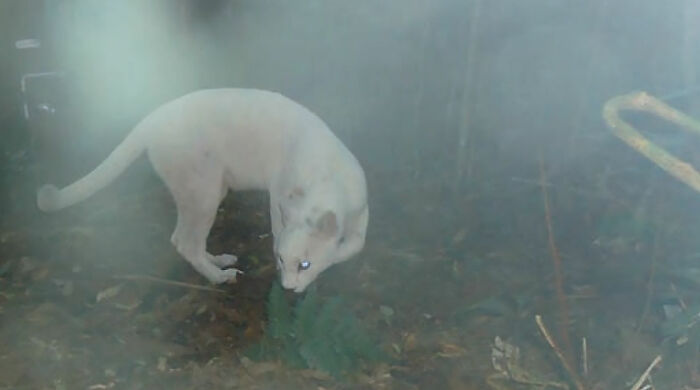
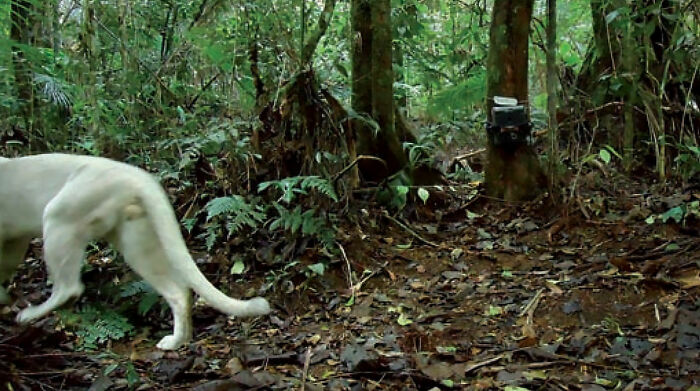
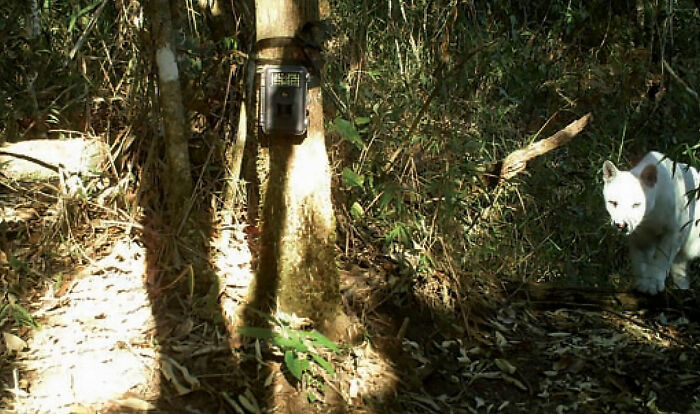

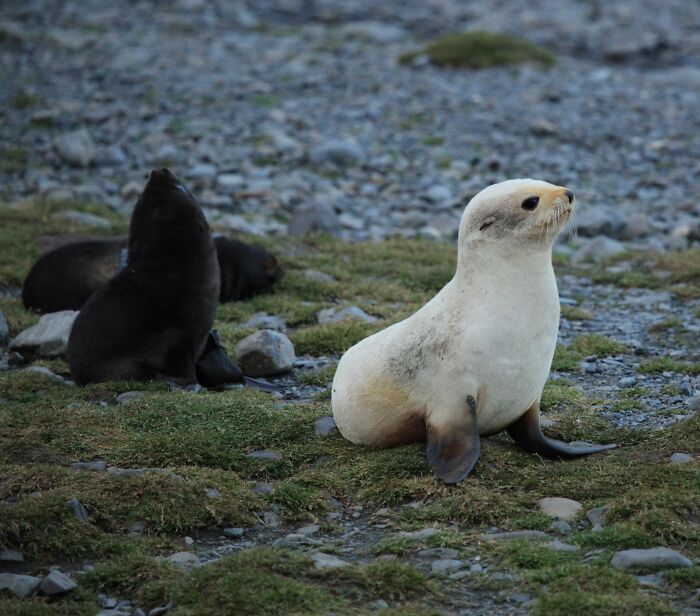
















 Photographer Finds Locations Of 1960s Postcards To See How They Look Today, And The Difference Is Unbelievable
Photographer Finds Locations Of 1960s Postcards To See How They Look Today, And The Difference Is Unbelievable  Hij zet 3 IKEA kastjes tegen elkaar aan en maakt dit voor zijn vrouw…Wat een gaaf resultaat!!
Hij zet 3 IKEA kastjes tegen elkaar aan en maakt dit voor zijn vrouw…Wat een gaaf resultaat!!  Scientists Discover 512-Year-Old Shark, Which Would Be The Oldest Living Vertebrate On The Planet
Scientists Discover 512-Year-Old Shark, Which Would Be The Oldest Living Vertebrate On The Planet  Hus til salg er kun 22 kvadratmeter – men vent til du ser det indvendigt
Hus til salg er kun 22 kvadratmeter – men vent til du ser det indvendigt  Superknepet – så blir snuskiga ugnsformen som ny igen!
Superknepet – så blir snuskiga ugnsformen som ny igen!  Meteorite That Recently Fell in Somalia Turns Out to Contain Two Minerals Never Before Seen on Earth
Meteorite That Recently Fell in Somalia Turns Out to Contain Two Minerals Never Before Seen on Earth  Nearly Frozen Waves Captured On Camera By Nantucket Photographer
Nearly Frozen Waves Captured On Camera By Nantucket Photographer  It’s Official: Astronomers Have Discovered another Earth
It’s Official: Astronomers Have Discovered another Earth 
iljitf
0modho
66ylkq
15v8ce
pgu690
72u51o
590×52